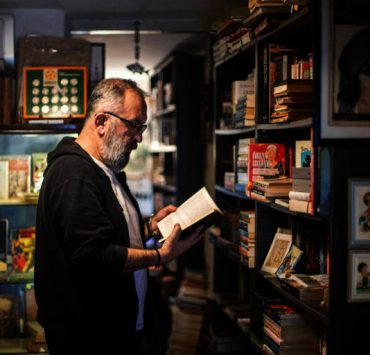Challenge to Comelec’s credibility
With nine months to go before the 2025 midterm elections, the Commission on Elections (Comelec) is beset by allegations of corruption in its award in February to Miru System Co., a South Korean voting technology company, of the contract for the provisioning of vote counting machines.
The contract, which is valued at P17.9 billion, consists of, among others, the supply of 110,000 automated counting machines, laptops, ballot boxes and ballots, and the software for the management of the election system.
Earlier, the Comelec had disqualified Smartmatic Philippines Inc., the company that supplied those equipment in prior elections, from participating in the bidding.
Prior to the bidding, Smartmatic was implicated in the money laundering case the United States justice department had filed against former Comelec chair Andres Bautista in connection with the award to Smartmatic of a $199-million contract for the tabulation of votes in the 2016 elections.
Overseas banksThe complaint alleged that Bautista received bribe money from Smartmatic through overseas banks. Despite that allegation, however, the complaint did not accuse it of tampering with the results of the 2016 polls which a US government report had described as “generally free and fair.”
In an uncanny turn of events, Comelec chair George Garcia has found himself in a situation similar to that of Bautista’s with regard to Miru Systems.
Without naming names, Sagip party list Rep. Rodante Marcoleta had said that a Comelec official accepted bribe money from a Korean firm and who purportedly held numerous bank accounts in banks in Singapore, North America, China, and the Caribbean.
He further stated that the money transfers made to 49 offshore accounts between June 2023 and March 2024 coincided with the Comelec’s decision to award the contract to Miru Systems at a cost he described as the most expensive poll contract in Philippine history.
Although he was not named by Marcoleta, Garcia denied the insinuation that he received billions in pesos in bribe money to make that award.
Waiver of bank secrecyIn an effort to clear his name, Garcia sent a letter to the heads of the Anti-Money Laundering Council (AMLC) and the Bangko Sentral ng Pilipinas waiving the secrecy of his bank accounts.
He also authorized the AMLC “to open and investigate the bank accounts allegedly under my name and to inquire with your counterparts or equivalent agencies in the mentioned foreign countries to determine the existence or non-existence of such accounts.”
Not long after, former representative Edgar Erice sent a letter to the Comelec requesting it to investigate alleged $15 million worth of bank accounts in the Bahamas of a poll official.
He attached to his letter a list of the 14 Bahamas bank accounts where the bribe money were supposedly deposited.
Two of the banks mentioned in Erice’s letter—Land Bank of the Philippines and Metrobank—later issued certifications denying the existence of bank accounts in their banks purportedly in Garcia’s name.
‘Smoking gun’Stripped of their rhetoric, it is apparent the allegations of Marcoleta and Erice are sorely lacking in documentary evidence or the proverbial “smoking gun” that would show that Garcia or any other Comelec commissioners demanded or received money in consideration for the award of the contract to Miru Systems.
If the document Erice attached to his letter in regard to the 14 Bahamas bank accounts were presented in court, it would no doubt be summarily discarded by the court as a worthless piece of paper.
With the way the claim of corruption had been presented, it appears Garcia’s detractors want him to prove his innocence rather than them proving his culpability for corruption.
Verily, if Garcia has something to hide, he would not have waived the secrecy of his bank deposits. The fact that he did voluntarily or without being asked or demanded to do so speaks volumes.
Politically volatile societyAlthough the allegations of corruption against an unnamed Comelec official do not appear to have gained traction in the public, it behooves the Comelec leadership to take all measures necessary to assure the electorate that the 2025 polls would be free, fair, and credible.
A principal hallmark of a democratic system of government is the ability of the people to freely select the men and women who shall manage the affairs of government.
It is reasonable to assume that when the Comelec chose Miru Systems to assist it in the conduct of the 2025 elections, it made sure it would be able to efficiently and accurately manage the voting process and the tabulation of its results.
In this politically volatile society of ours, the Comelec’s credibility in the conduct of elections is crucial. It could spell the difference between relatively calm and disorderly political atmosphere between 2025 and 2028.

















